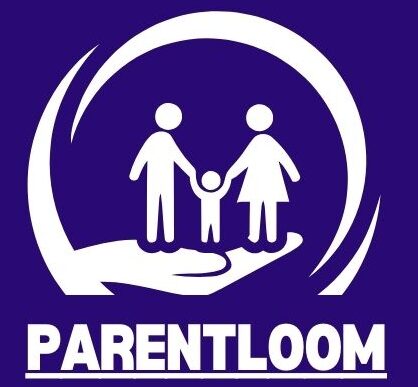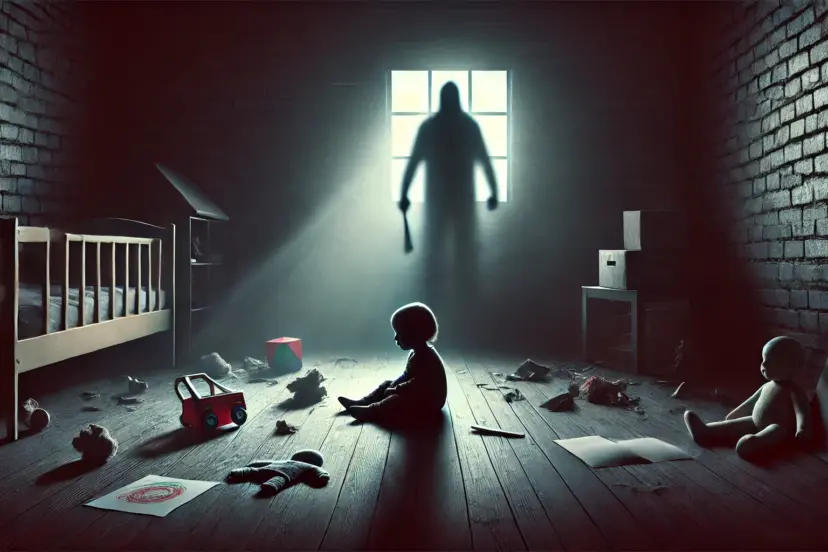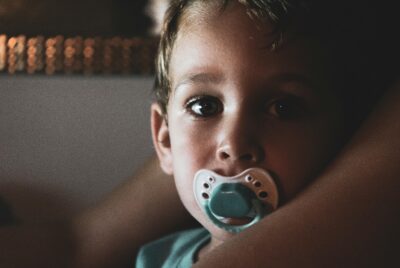Abusive Parents: Breaking the Silence and Finding Hope
We may earn a commission for purchases made using our links. Please see our disclosure to learn more.
Abusive parents is not only heartbreaking, but it may change a person’s life. A child’s foundation is rocked when the very adults who are meant to protect and nurture them turn out to be the ones causing harm. You may be curious as to why this occurs or what steps can be taken. Let’s explore this subject in depth, bringing abusive parenting to light and providing a path forward for individuals affected.
What Is Parental Abuse?
In addition to not necessarily leaving visible scars, parental abuse is not always evident. It may manifest as physical, psychological, emotional, or even negligent. Fundamentally, it deprives a child of the affection and security they are entitled to. The first step in dealing with abuse is recognizing what it is.
Types of Parental Abuse
The most obvious type of abuse is physical, which leaves scars on the body but also wounds the heart with invisible scars. In contrast, emotional abuse destroys a child’s self-esteem by words and deeds. Even though it goes unspoken, neglect frequently deprives children of their fundamental need and attention. Then there is sexual and financial abuse, which are both serious breaches of trust that have a significant effect on a child’s feeling of safety and value.
Signs of an Abusive Parent
Abuse can be silent and subtle at times, yet it can be loud at others. Keep an eye out for trends such as unpredictably fluctuating moods, excessive control, or persistent criticism. Abusive parents may deny their children affection or even basic needs like clothing or food. These indicators are warning signs that require prompt attention and action.
Why Do Parents Become Abusive?
It’s easy to call abusive parents “monsters,” but the truth is often more complex. Many were victims of abuse themselves and unknowingly continue the cycle. Others may struggle with addiction, untreated mental health issues, or overwhelming stress. While these reasons don’t excuse abuse, they help explain its roots and offer pathways to change.
The Impact of Abusive Parenting on Children
Growing up with an abusive parent leaves children with wounds they often carry into adulthood. Emotional scars like anxiety, depression, and low self-esteem become daily battles. Chronic stress can also take a toll on physical health, leading to long-term illnesses. Building healthy relationships later in life feels impossible when trust was broken so early.
The Cycle of Abuse
Abuse often repeats itself, passing from one generation to the next like a dark legacy. Those who were hurt as children may unknowingly become the source of pain for their own kids. Breaking this cycle takes courage, self-awareness, and support. It’s a hard road, but it’s one worth walking.
Gaslighting in Parenting
Gaslighting by a parent might sound shocking, but it happens more than you think. It’s when a parent manipulates their child’s reality, leaving them confused and questioning their own experiences. Statements like, “You’re just imagining things,” or “That never happened,” are common. Over time, this tactic erodes a child’s confidence in their own memories and feelings.
Cultural and Societal Influences
In some cultures, strict discipline is seen as love, but where’s the line between discipline and abuse? Societal norms often blur these boundaries, making it harder to identify and call out abusive behavior. This silence perpetuates abuse, leaving children trapped. Raising awareness is key to changing this narrative.
How to Cope with Abusive Parents
Coping with an abusive parent starts with acknowledging the pain—it’s real, and it’s not your fault. Finding someone you trust to talk to, like a friend or teacher, can be a lifesaver. Setting boundaries, even if it feels impossible, is crucial for your mental health. Building a support network reminds you that you’re not alone in this struggle.
The Role of Therapy
Therapy is a game-changer for those dealing with the trauma of abusive parenting. It provides a safe space to unpack emotions, understand what’s happening, and find ways to heal. A therapist can help you regain control over your life and build healthier patterns. It’s not about forgetting—it’s about moving forward.
Can Abusive Parents Change?
The big question: can they change? The answer is yes, but only if they’re willing to acknowledge their behavior and commit to change. It’s a long and difficult process that requires therapy, accountability, and self-awareness. While not every abusive parent chooses this path, some do, and it can make a difference.
Legal Protections Against Abusive Parents
Laws exist to protect children from abuse, but they vary depending on where you live. Schools, counselors, and doctors are often required to report signs of abuse. Legal options like restraining orders or foster care placements can provide safety. Knowing your rights and the resources available is a critical step in seeking help.
The Power of Forgiveness (or Not)
Forgiveness is a deeply personal choice, and there’s no right or wrong answer. For some, forgiving an abusive parent brings peace and closure. For others, cutting ties is the healthiest decision they can make. Both paths are valid, and only you can decide what feels right for your journey.
How to Help Someone with Abusive Parents
Supporting someone with abusive parents starts with listening—really listening—without judgment. Offering practical help, like connecting them to resources or simply being there, can mean the world. Patience is key, as healing takes time. Remind them they’re not alone and that their feelings are valid.
Healing as an Adult Child of Abusive Parents
The wounds of childhood abuse can feel like they’ll never heal, but they can. Therapy, self-help books, and support groups are incredible tools for reclaiming your life. You’re not broken—you’re resilient, and healing is within reach. Give yourself grace as you navigate this journey.
Breaking the Cycle of Abuse
If you’ve experienced abuse and want to ensure it ends with you, self-awareness is your superpower. Educate yourself on healthy parenting techniques and seek help if you’re struggling. The cycle doesn’t have to continue, and breaking it is one of the most courageous things you can do.
The Role of Schools in Addressing Parental Abuse
Schools play a vital role in recognizing and addressing abuse. Teachers and counselors are often the first to notice when something’s wrong. Their support can provide a lifeline for children who feel isolated and helpless. Encouraging open communication and trust between schools and students can make all the difference.
Is It Okay to Cut Ties with Abusive Parents?
Walking away from an abusive parent might feel like betrayal, but it’s not. Your mental health and well-being come first, always. Cutting ties can be a brave and necessary step toward healing. It’s okay to choose peace over obligation.
Resources for Victims of Parental Abuse
If you’re experiencing abuse or know someone who is, help is available. Crisis hotlines, support groups, and nonprofits dedicated to abuse victims can provide guidance and relief. Online forums can offer a sense of community and understanding. You’re not alone, and there’s always a way forward.
The Long-Term Impact of Childhood Abuse: Insights from Research
The Adverse Childhood Experiences (ACE) Study revealed a powerful connection between childhood abuse and long-term health issues, showing that individuals with higher ACE scores face increased risks for heart disease, mental health disorders, and even cancer. This groundbreaking research underscores the lifelong impact of early trauma, emphasizing the need for intervention and support. Similarly, a comprehensive review titled “Sixty Years of Child-to-Parent Abuse Research” examined decades of studies on abusive dynamics, uncovering how intergenerational patterns and societal factors contribute to these behaviors. Both studies highlight the far-reaching consequences of abuse and the critical importance of addressing these issues through education, therapy, and policy changes.
Supportive Products for Healing and Recovery from Abuse
While healing from abusive parenting is deeply personal, certain products can provide comfort, relaxation, and a sense of control. These items, available on Amazon, can support emotional and mental well-being during the recovery journey.
Weighted Blanket by YnM
Weighted blankets are known for their calming effects, mimicking a comforting hug to reduce anxiety and promote restful sleep. The YnM weighted blanket is customizable to your weight preferences and provides cozy support for better nights.
Muse 2: Brain Sensing Headband
This innovative headband guides meditation by providing real-time feedback on your brain activity, heart rate, and breathing. It’s ideal for those looking to build mindfulness and reduce stress.
Relaxation Aromatherapy Diffuser Set
Essential oils like lavender, chamomile, and eucalyptus can create a calming environment. This diffuser set includes therapeutic-grade oils to promote relaxation and reduce stress.
Therapeutic Stress Relief Gel Ball Set
These squishy, stress-relieving balls are perfect for releasing tension during difficult moments. The set includes various textures and resistance levels to suit your needs. View on Amazon
Shiatsu Back and Neck Massager
A massage can be incredibly therapeutic for reducing physical tension caused by stress. This Shiatsu massager targets sore muscles with heat and kneading, offering relief at home.
Conclusion
Abusive parents leave deep scars, but those scars don’t have to define your life. Healing is possible, and there’s hope beyond the pain. Speaking up, seeking help, and breaking the silence are powerful acts of courage. Together, we can break the cycle of abuse and create a brighter future.
FAQs
What should I do if I’m being abused?
Recognize the abuse, prioritize your safety, and reach out to someone you trust, like a teacher or counselor.
Can therapy really help heal the trauma of abuse?
Yes, therapy provides tools to process trauma, build resilience, and take back control of your life.
Is it wrong to cut ties with an abusive parent?
Not at all. Protecting your well-being is more important than maintaining a toxic relationship.
How can I help a friend dealing with abusive parents?
Listen without judgment, be there for them, and guide them toward professional support if they’re ready.
Can abusive parents truly change?
Change is possible, but only if they acknowledge their actions and commit to seeking help.




